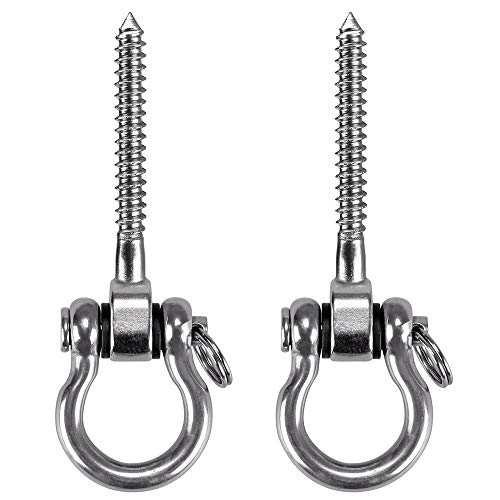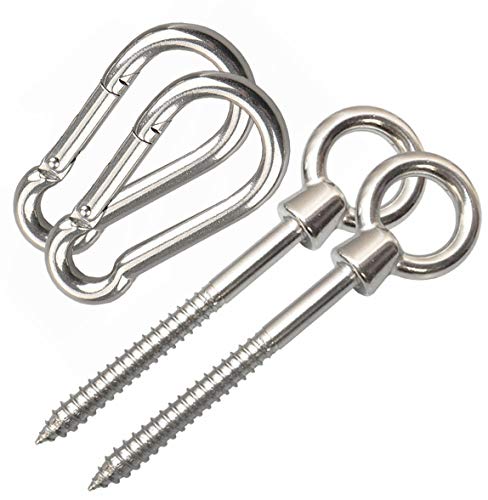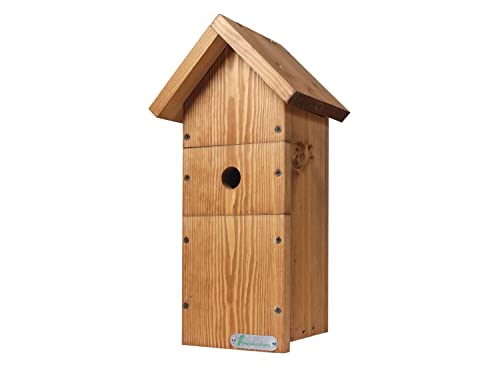Introduction to Swing Hooks: What They Are and Why You Need Them
Understanding Swing Hooks
Swing hooks are essential components for hanging swings, hammocks, or any suspended seating solution. They provide a secure point of connection between your seat and the suspension point, be it a tree branch, ceiling, or a frame. Without the right swing hooks, you risk unsafe and unstable seating arrangements, which can lead to accidents or damage to your outdoor equipment. Their practicality goes beyond mere function; they enhance your outdoor or indoor experience by enabling you to create a relaxing space.
The Need for Quality Swing Hooks
Opting for quality swing hooks means investing in safety and durability. Imagine settling into your hammock on a sunny day, only for it to come crashing down due to unreliable hardware. Choosing the correct swing hooks ensures not only that you enjoy your leisure time without fear, but also that your swings remain in place for years. Adequately chosen hooks can withstand various weather conditions and heavy weights, making them crucial for a secure setup.
Types of Swing Hooks: Choosing the Right Style for Your Setup
Different Swing Hook Styles
There are several types of swing hooks available, each designed for specific purposes and setups. For instance, screw-in hooks are ideal for permanent fixtures, providing a sturdy hold in wooden trees or beams. If you’re looking for something more versatile, consider quick links or carabiners that allow for easy attachment and detachment. For heavier swings, aim for stainless steel hooks that can accommodate additional weight, enhancing both safety and longevity.
Matching Hooks to Your Swing Type
Choosing the right swing hook also depends on the type of swing you have. For standard swings or porch swings, double hooks may be best as they provide a wider attachment and balance the weight perfectly. If you are hanging a hammock, look for hooks designed specifically for that purpose, as they often allow for more hang options. Understanding your swing type ensures you select hooks tailored for its needs, leading to a more enjoyable and secure experience.
Material Matters: Understanding Durability and Weather Resistance
The Importance of Material Selection
The longevity and safety of your swing hooks are significantly influenced by the material they are made of. Stainless steel is often recommended due to its resistance to rust and corrosion, making it perfect for both indoor and outdoor use. Alternatively, coated or galvanized steel hooks offer similar durability, though they might be less resilient in extreme weather conditions. By choosing high-quality materials, we ensure that the swing hooks withstand wear and tear over time.
Weather Resistance Explained
Weather resistance is particularly vital if your setup is outdoors. Imagine investing in swing hooks that rust within a season; it not only affects performance but also safety. Selecting weather-resistant materials means that your swing hooks will remain functional in rain, sun, or snow, maintaining a safe swinging setup throughout the year.
Installation Made Easy: Step-by-Step Guide for Secure Fitting
Preparing for Installation
Before installing your swing hooks, ensure you have the right tools at hand, including a drill, a wrench, and a level. Determine the desired height and angle for the swing, as these factors will influence the installation process. Mark the spots for the hooks using a pencil to achieve a balanced and aesthetically pleasing setup.
Secure Fitting Process
To install swing hooks, start by drilling pilot holes into your marked spots. Make sure these holes are slightly smaller than the diameter of your hooks to allow for a snug fit. Insert the swing hooks into these holes, ensuring they are tightly secured. Use a wrench if necessary to tighten them for maximum stability. Finally, test the strength by gently applying weight to the hooks before fully using them. This process ensures your swing setup is reliable and safe.
Tips for Safety and Maintenance: Keeping Your Swing Hooks in Top Shape
Routine Checks for Safety
Regularly inspecting your swing hooks is crucial to maintaining safety. Look for signs of wear, rust, or looseness. If you notice any issues, replacing the hooks immediately should be a priority to prevent accidents. Additionally, periodically checking the tightness of the hooks will ensure they remain securely fixed in place.
Maintenance for Longevity
To prolong the lifespan of your swing hooks, clean them occasionally, especially if they are mounted outdoors. A simple wipe with a damp cloth can remove dirt and debris. In coastal areas, maintenance is even more critical because salty air can accelerate corrosion. Consider applying a rust protection spray to further shield your hooks from the elements. By taking these steps, we can keep our swing hooks in top shape for enjoyable swinging experiences.



















